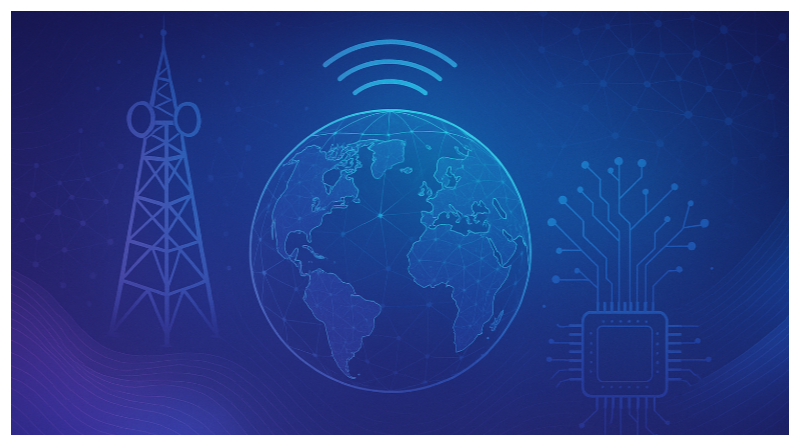
Deutsche Telekom (DT) and South Korea’s SK Telecom (SKT), two of the world’s most innovative telecom giants, announced the formation of a new global joint venture aimed at developing next-generation AI-powered tools and platforms specifically designed for the telecom industry. This strategic alliance signals a pivotal shift in how operators will manage networks, serve customers, and create new revenue streams in the AI era.
🤖 Purpose: AI for Telcos, by Telcos
The newly announced JV (Joint Venture) will focus on building a Telco-specific Large Language Model (LLM) that can power a variety of services tailored for the telecommunications sector, including:
- Hyper-personalized customer support powered by AI chatbots and virtual agents
- AI-driven network operations (AIOps) for predictive maintenance, self-healing networks, and anomaly detection
- Productivity tools for internal teams, including customer care, sales, and IT
- Custom AI apps that operators can plug into their platforms to deliver enhanced digital services
Unlike general-purpose AI models (like ChatGPT or Gemini), this telco-specific LLM will be trained on telecom datasets, customer interactions, network logs, and operational workflows—making it significantly more effective and compliant with industry regulations.
🧠 The Tech Stack and Vision
The JV plans to operate as a neutral AI platform for the global telecom industry, eventually offering its LLM as a service (LLMaaS) to other operators worldwide. It will also provide an AI marketplace where telcos can access or publish plug-and-play tools, workflows, and APIs tailored to their needs.
Initial R&D will take place in Berlin and Seoul, leveraging both companies’ AI research units and local startup ecosystems. The platform is expected to launch its beta version in early 2026.
Tim Höttges, CEO of Deutsche Telekom, said:
“We’re combining our strength in infrastructure and AI innovation with SK Telecom’s software expertise to create an ecosystem that benefits not just our companies, but the global telco community.”
🌍 Industry Implications
This initiative reflects a growing trend among telcos to gain independence from big tech AI providers by building their own models tailored to their specific data and needs. The move comes as telcos seek:
- Cost efficiency in operations
- New monetization pathways beyond connectivity
- Increased control over data sovereignty and compliance
- Better customer experiences through automation and personalization
Lee Jong-ho, CEO of SK Telecom, emphasized:
“Telcos can no longer remain just connectivity providers. AI will be the heart of next-gen telecom, and this JV ensures we lead that transformation.”
📈 Market Impact and Future Partnerships
The announcement is expected to encourage other major carriers—especially in Europe, Asia, and LATAM—to collaborate on shared AI infrastructure. Industry insiders suggest that Orange, Singtel, and Telefónica may be the next to join or form similar alliances.
Analysts at IDC estimate that AI-driven transformation in telecom will generate over $60 billion in value by 2030, through reduced churn, smarter CAPEX planning, and AI-enhanced B2B offerings.


